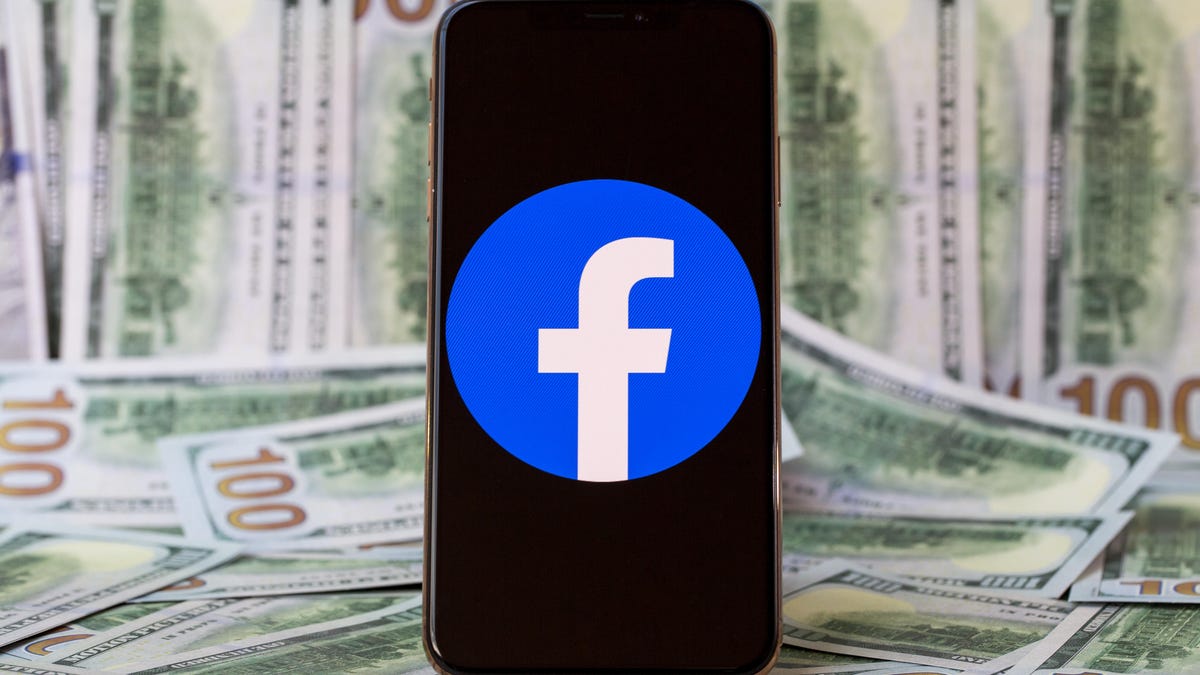Zuckerberg tells investors Facebook wants to be 'understood' rather than 'liked'
The remarks come after Facebook reported slower revenue growth.

Facebook reported fourth-quarter earnings on Wednesday.
Facebook , already dealing with criticism about misinformation and protection of user privacy , has a new problem to worry about: slipping profits. The social media giant, which makes most of its money from selling ads, on Wednesday beat Wall Street's expectations for earnings and revenue in the fourth quarter. But for the full year, the company's profit shrank due to rising expenses, sending its stock lower in after-hours trading.
The weak full-year performance along with slowing revenue growth adds to Facebook's list of woes. The company finds itself in the crosshairs of numerous antitrust investigations at both the federal and state level. Politicians and advocacy groups complain that the company isn't doing enough to combat misinformation on the platform, a pressing issue as the 2020 US presidential campaign ramps up. Facebook's image, damaged by the Cambridge Analytica data privacy scandal two years ago, hasn't been helped by CEO Mark Zuckerberg's decision to allow lies in ads placed by politicians, arguing that people can assess the candidates' words for themselves.
The world's largest social network has refused to bow to public pressure, setting the stage for an ongoing battle about whether it's doing enough to fix its problems. On Wednesday, Zuckerberg said during a call with investors that his goal over the next decade "isn't to be liked, but to be understood." Facebook will focus on showing the public the principles the company stands for, he said. That includes backing free speech, encryption and targeted ads.
"These positions aren't always going to be popular, but I think it's important for us to take these debates head on," he said during the earnings call.
Zuckerberg also said the company is more prepared to combat election interference. He acknowledged that the company was behind in 2016 when Russian trolls used the social network to sow discord among Americans. Since then, Facebook has been pulling down fake accounts and worked on other elections including in the EU, India and Mexico.
"We're going to continue seeing the adversaries get more advanced," he said during the call. "It's not just Russia at this point. We've seen similar types of attempts from Iran, China in some places, others as well."
Facebook's efforts haven't been enough to appease its critics, including lawmakers and celebrities who've called on Facebook to change its controversial stance on political ads. On Wednesday, US presidential candidate Elizabeth Warren said the efforts by tech companies to combat disinformation "no more than nibbles around the edges." The Massachusetts Democrat also called for civil and criminal penalties for knowingly disseminating misinformation about when and how to vote in US elections.
New Facebook experiences
From its efforts in messaging to virtual reality, Facebook's role in our lives continues to grow. During the fourth quarter, the company announced it's testing a place for news stories on the Facebook app and rolled out a tool to remind users to get their preventive health care screenings and checkups.
About 2.9 billion people use Facebook, Instagram , WhatsApp or Messenger each month, the company said Wednesday. Facebook saw the most growth in messaging, groups and ephemeral content.
The company has plans to make it possible for users to send messages across Facebook Messenger, WhatsApp and Instagram without switching apps. To do so, the company is fully encrypting Messenger and Instagram so even the social network can't see the messages -- a project that law enforcement fear could make it more difficult to crack down on child exploitation.
Zuckerberg said users can expect new experiences that allow users to do more than just text in messaging apps. In the next six months, for example, the company is planning to roll out a feature that lets users send money through WhatsApp. More challenging efforts like the integration of Facebook, WhatsApp and Instagram are going to "take a long time to see through," he said.
The company also said that sales of its Oculus Quest virtual reality headset was "stronger than expected" and its dating feature was "going well," but didn't share any data.
Slowing revenue growth
While Facebook beat expectations during the fourth quarter, some investors signaled they're concerned that the company's growth may have peaked.
In after-hours trading, Facebook shares were down more than 6% to around $208.90.
In the quarter that ended Dec. 31, Facebook raked in $21.08 billion in revenue, above the $20.89 billion in revenue estimated by analysts surveyed by Thomson Reuters. The company's fourth-quarter revenue, though only grew by 25%, which is lower than the 30% growth rate it had in the fourth quarter from 2017 to 2018.
The social network earned $2.56 per share, beating estimates of $2.52 per share. It posted a profit of $7.35 billion, up 7% from the fourth quarter last year.
In the full year, though, the social network's profit dropped by 16% to $18.49 billion. Expenses increased by 51%.
Facebook Chief Financial Officer David Wehner attributed the revenue slowdown to the business maturing. New privacy laws such as the California Consumer Privacy Act could make it tougher to target ads at users.
Facebook's monthly active users grew to 2.5 billion in the fourth quarter, an uptick of 8% compared to the same period last year.
Originally published Jan. 29, 1:27 p.m. PT
Update, 4:28 p.m.: Includes more info from conference call.

